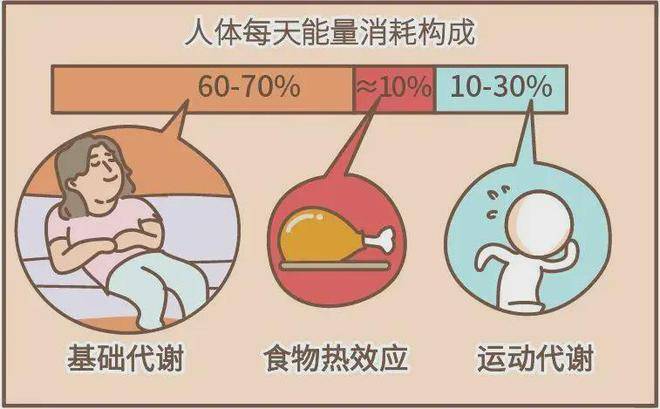In modern society, weight loss has become a focus of concern for many people. However, in the clinical nutrition department of Shunyi Maternal and Child Hospital, doctors often encounter individuals who are unwilling to expend calories through exercise and only aim to achieve weight loss by restricting their diet. Next, clinical nutrition experts will bring a new perspective on weight loss – starting from improving basal metabolic rate, which can also achieve weight loss effects.
What is Basal Metabolic Rate (BMR)?
Basal Metabolic Rate (BMR) refers to the minimum energy expenditure required for maintaining life activities in a quiet, awake, and fasting state of the body, which accounts for the vast majority of our daily energy consumption, usually between 60% to 75%. Therefore, increasing the basal metabolic rate means that our body can burn more calories even in a state of rest, thereby achieving weight loss effects.
How to increase Basal Metabolic Rate?
1. Increase muscle mass: Muscles are the main organs that consume calories. Compared to fat, muscles can consume more energy even at rest. Therefore, increasing muscle mass through appropriate strength training is an effective way to improve basal metabolic rate.
2. Adequate protein intake: Protein is an essential ingredient for muscle growth and repair. Sufficient protein intake helps in muscle growth and maintenance, thereby increasing basal metabolic rate.
3. Maintain sufficient sleep: Inadequate sleep can lead to a decrease in basal metabolic rate. Therefore, maintaining 7 to 9 hours of sufficient sleep each night is essential for improving basal metabolic rate.
4. Reduce stress: Long-term mental stress can put the body in a state of stress, lowering the basal metabolic rate. Reducing stress through exercise, meditation, yoga, etc., helps in increasing basal metabolic rate.
Weight loss is not just about restricting diet.
Although restricting diet can help reduce weight in the short term, in the long run, this method may lead to issues such as poor nutrition and a decrease in basal metabolic rate. Once normal eating habits are resumed, weight can easily rebound. Therefore, we should discard the misconception of “dieting for weight loss” and focus on improving basal metabolic rate to achieve a healthy and sustainable weight loss effect.
Conclusion:
Weight loss is not an instant process, it requires patience and perseverance. By increasing basal metabolic rate, we can achieve weight loss without increasing exercise levels. Moreover, this method is healthier and more sustainable. Hopefully, this article can provide a new perspective on weight loss for everyone and lead us towards a healthy and beautiful future! Text | Clinical Nutrition Department, Ma Aqin


